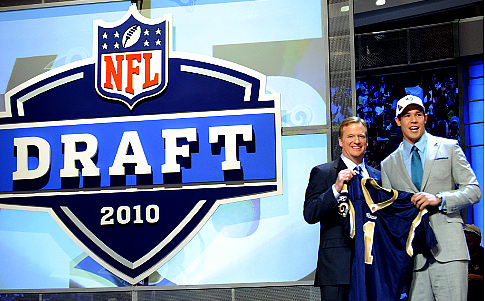In my last post I explained how the sales organization is focused on winning this Sunday’s game, but the marketing team is thinking longer term about how to win the Super Bowl. The two teams, product and sales, have an irreconcilable difference in focus, priorities and strategy. By its nature, the sales organization is goaled on short term performance. Sales leaders focus on new bookings for the next 30, 60 or 90 days. By contrast, the marketing organization must think longer term. Product managers and marketing leaders must focus on the next 6, 12 or 36 months. One concept that many companies lose sight of is that you don’t have to win every game. Below are three examples of the long-term impacts of taking a sales-led, win-every-deal approach to your business.
Delaying Product Roadmaps to Win a Deal
Because sales leaders focus primarily on winning the next game, they often lobby to make sacrifices to long-term plans in order to achieve short-term gains. Often the large deals that generate the most new incremental revenue are also the ones with significant customizations to product offerings. To book the business, executives must push out product deliverables and reassign software developers to the build the customer-specific functionality.
In these situations, companies must choose between long term product leadership and short term revenue objectives. These are some of the most difficult choices that product executives confront. Often compromising the product roadmap is a necessary evil to promote larger corporate financial objectives. However, careful balance must be maintained so as not to succumb to a deal-driven strategy. In my career, I have seen numerous instances in which companies becomes sales-driven, prioritizing product roadmaps and capital investments based upon what is required to win the next deal. In football terms, this is the equivalent of trading next year’s first round draft pick in order to gain access to a skill or player that allows you to win one game.
Lower Customer Satisfaction
In addition to product roadmap changes, winning large deals often require customized support arrangements. Big customers might demand a scope of work that is outside the normal boundaries of support agreements. Or they might request an unrealistic set of service level objectives. Just as with product roadmap changes, over-commitments in the area of customer support require careful balance.
The consequence of these over-commitments is that key support personnel are forced to work lots of overtime to meet a client’s need. Heroes in the support organization will have to forgo weekends with their families to deliver on miss set customer expectations. For technical support personnel, they may be awoken in the middle of the night to resolve issues. Eventually these support staff become frustrated and resentful, exhausted or ill. Burn-out of support personnel results in attrition or under-performance.
The situation is similar to the NFL in which coaching staff will push key players to the point of exhaustion or injury in the pursuit of victory. We’ve all seen the movies such as Any Given Sunday and Varsity Blues in which coaches inject pain killers or use other pharmaceuticals to ensure injured players can stay on the field. While these strategies might work for one or two games, they are doomed to failure over the longer term.
Surrendering Sensitive IP
Sales managers will do almost anything in the name of winning business with a large account. If a sales representative believes they are losing competitive advantage in a deal they will lobby with product management to share more information about the future roadmap. Product Managers will be asked to share roadmaps or demos of alpha-version products. Sales management will appeal to the CMO to force discussions about your new “super-secret” product – in other words, the one you are hoping will be the next iPad. Such techniques provide no guarantees that you will win the deal. However, for certain you will be exposing sensitive intellectual property to the market. When the prospect hears about your super-secret product, they will likely ask your competitors to react to what you have shared.
Sharing your super-secret product with a prospect is similar to exposing new offense tactics early on in the season. Imagine sharing your best trick play in the second game of the season as you try to come from behind to overcome a 28-point deficit in the last 15 minutes of play. Your running back takes the snap then throws the ball 30-yards down field to an eligible lineman that rarely catches the ball. By attempting the play in a game that is not critical to win, you are limiting future success. First, your team is probably not well practiced at the play, which may lead to an interception. And you have exposed your best surprise tactics to future opponents who will be reviewing game tapes prior to an upcoming match.













Yes, yes, and yes. This is getting printed and tacked to my wall. My company is guilty of all 3 of these sins and it is slowly driving me insane.